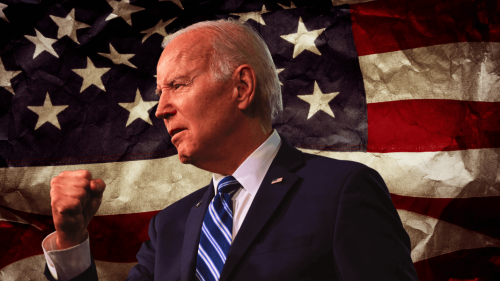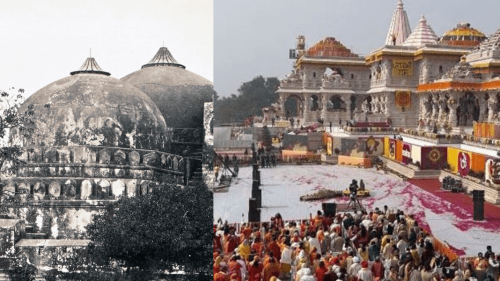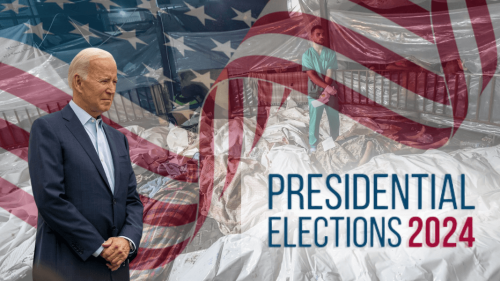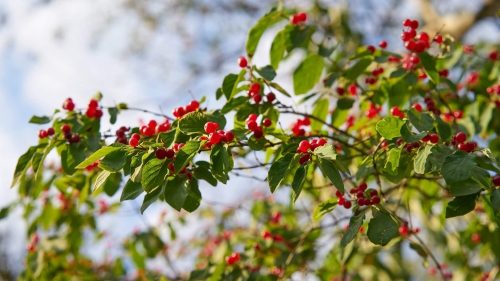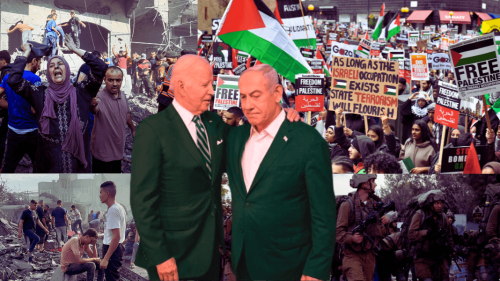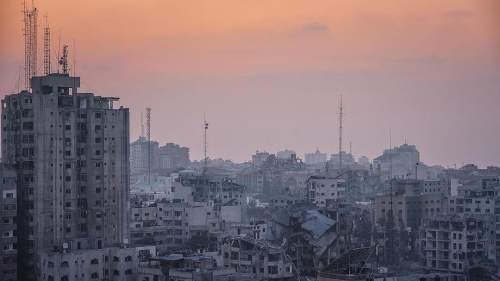A conversation with Shaykh Abdul Aziz, Vice President of Jamaat Islami, India
This past September, Shaykh Abdul Aziz of India's Jamaat Islami visited the United States, speaking to Muslims communities in several major metropolitan areas. During his stay in California, the Shaykh was kind enough to grant an interview to iviews.com. What follows are edited excerpts of a conversation he had with iviews.com Editor, Ali Asadullah.
AA: Maybe you could tell our readers how long you've been here on your trip to the United States and where you've been.
SAA: Yes ... you see ... for the last 35 days I have been traveling continuously. I was moving in Eastern America -- Chicago to New York, New Jersey and other places. Yesterday only I have come here and I attended the mosque, the sermon of Jummah.
Last night we had a good meeting [at the mosque]. Yes indeed. And all the Muslims were assembled there. I had to deliver a speech about the status of the minorities ... I mean ... of the Muslims there in India -- what are the challenges we are going to meet there. That [was] the main subject for me.
AA: How have you found your stay?
SAA: You see, I am very much pleased. While ... staying here I [have found] that in America I see freedom of religion is there. I'm impressed about that freedom. And secondly I find among the people, civic sense is there. And also I find the people of America ... are very much sympathizers to the destitutes who are suffering from the calamities -- the cyclones and ... riots taking place in the world. I find that these people are very sympathetic to these destitutes.
AA: Obviously Muslims in India, as a minority, have challenges we do not have here [in America]. One specific thing I am curious about -- we have elections coming soon in India. It's expected that the BJP will come into office once again. What is your outlook for Muslims [with reference to this]?
SAA: I think now the Muslims living [in India] have decided to ... vote for the democratic parties ... there, secular parties. They want to favor those secular parties so that we may isolate these fascist forces that in India are coming to ... power. [The BJP] may come up with a thin majority; not a thick majority, but a small thin majority. But the struggle will be going on with the democratic forces as well as the fascist forces.
AA: Are there particular parties or secular politicians [in India] that Muslims have found success with.
SAA: See there are those secular parties who are working there. Among them Congress is one of the most important parties ... But unfortunately I feel that the other parties are divided, they are not united. So ... the Muslims are looking towards Congress. They want ... put ... pressure, to let them win in a majority. They are trying for the best, although the hopes are somewhat bleak it seems. Yet, the struggle is going on there. I think within two or three more elections the atmosphere will completely change and these fascist forces will not come up ... again.
AA: You mentioned the Congress Party. So, Sonia Gandhi ... is she someone who can be a strong ally for the Muslims or is that a relationship that would need to develop.
SAA: Yes, there should be -- some development is needed between these two relations. Anyhow ... at present, in my view, the Muslims ... are inclined to give their vote to secular forces like Congress. It seems the inclination of the Muslims is towards this party...
AA: Here in the United States we don't have an effective political party or political movement of our own. In India, obviously there are so many more Muslims. Is there a reason why we have seen no national Muslim leadership come forward in the political arena?
SAA: Recently, you will be very pleased to hear from me, that five parties have joined hands. Jamaat Islami Hind, one of the most important in this body and Jamiat Al-Ulema Hind and the Muslim Mushavirat, Muslim Personal Law Vote and the Milli Council -- these are the five important parties or the organizations who have come together ... I mean to say joined their hands [to] form a Muslim agenda there consisting of 32 points -- economic, political and other [programs]. That, I mean to say, a breakthrough has been seen there very recently. I mean, two or three months back.
AA: So are they going to put forth a candidate for parliament or for any other position?
SAA: Yes there are the Muslims who are standing for the parliamentary seats also along with the assembly seats also. There are a few Muslims, yes.
AA: Do you know, in terms of an estimate, what kind we think about ... how many seats do you think they can possibly get?
SAA: This time I think, I cannot definitely say but I can estimate. This year it seems Muslims will have a number not less than 35 to 40 seats...
AA: About the Babri Masjid and the whole Rama Temple controversy -- now my understanding is that the rule of law stands with the Muslims on this. And now it's in the courts. What do you see ... what do you think the decision of the court will be?
SAA: I find that justice ... or to say, the courts are without any bias. They are running their work. They are working. The courts, the high courts, the Supreme Court, the judges are still without any prejudice. They are open-minded. I hope that the judgement will come in the favor of the Babri Masjid. The judgement will be there that the demolition was wrong.
AA: Now in terms of the judiciary, the legal systems and the courts, has the BJP been able to infiltrate and work into this and is this becoming a problem?
SAA: They are trying to change ... to make an amendment in the constitution also. They have set up a committee. These BJP government has already set up a committee to amend the constitution in accordance with their own hidden agenda. They want to put that hidden agenda ... afterwards when they come to power, they will open it, that hidden agenda will become an open secret.
Even [article] 370 [of the] constitution ... they want to renew that 370 section because [they want the] special status of Kashmir [to] be dropped ... they want it.
AA: In terms of the BJP, this constitutional amendment is one thing. What are other important things you think they would push for?
SAA: Yes, the second important thing they are going to do is change the Muslim Personal Law and replace it with Uniform Civil Code. And we are dead against that determination. We too are determined to fight against that with tooth and nail against that imposition of Uniform Civil Code.
They also want to change the minority character of the ... Muslims in India ... Just like the Urdu language is there ... they are not going to encourage ... the Urdu language even though we know that is one of the constitutionally recognized languages of India. But they won't encourage it. They want Hindi [to] dominate throughout the country. But in the southerly states Hindi is not at all so appreciated; it is not favored by the southerly states.
AA: I wanted to get some clarification on one particular issue. A few months ago when the crisis was taking place in Kashmir, it was reported in the United States that a group of several Imams (religious leaders) had come together and said that they supported India in what it is doing in Kashmir. Obviously there was a lot of skepticism about that in the American Muslim community. Are these people being pressured? Do some Muslims in India really feel this way?
SAA: As far as the Jamaat Islami [is concerned, it] has fought the [Indian] position [on Kashmir]. I do like to put the resolution before you about Kashmir. There are other parties working according to their own wishes ... We can't hinder the way of the [other] parties.
A number of parties are working there. Some want that 3rd option: that is that Kashmir should be an independent state. Some want that Kashmir should be attached to Pakistan. Some of the Muslim parties, their answer in Kashmir ... they think we should go with India.
Jamaat Islami says [that] whatever [solution] be there, negotiations should take place among the parties -- Pakistan, Hindustan and the Kashmiri people; three together have the dialogue.
Secondly we say, in the name of terrorism the security forces should not terrorize or torture the young boys of Kashmir.
AA: In terms of the Jamaat Islami, what kind of representation do you have? In terms of the other parties, what's the breakdown?
SAA: One point I should like to put before you [is that] Jamaat Islami is not a political party. It is purely a religious party. But whatever happens in the face of politics, we are there to criticize in accordance with the Sharia, in accordance with the law of this land. We openly criticize but we are not a political party, we are not going to put out a candidate in the field of politics there. But we use our opinion and vote in favor of [democracy]. Therefore we have decided whoever be the lover of democracy, [those] other parties deserve our vote ... so that we may isolate the fascist forces and we may have a good government governing in our country.
AA: With reference to Dawah (teaching about Islam) efforts in India ... have you found a lot of success in India or is there a lot of resistance?
SAA: I am very hopeful that the Dawah work will have more and more bright chances in India. We are doing in all the communities, irrespective of caste and creed, this Dawah work. And many of the people are reading [the] Holy Koran in their own languages because we have translated the Holy Koran and Muhammad's traditions ... in the 14 languages of India, constitutionally recognized, important languages of India. We have done that work.
Because of that translation the Dawah work has become very easy for us. We are giving the Holy Koran to non-Muslims and other communities are taking this Holy Koran, kissing it, embracing it and putting it on their heads and also they are reading.
Even among the non-Muslim ladies now ... graduate, undergraduate and postgraduate girls, they are studying with ... enthusiasm. They are writing letters to us: "Sir what a nice book we got in our hands. You Muslims have put it in a secret ... for hundreds of years you have not unclosed the fact before us. Now ... we are fortunate enough to read this holy Koran. What a nice book this is."
Some of the women, ladies have written to us that "from today I will do my homework according to the Koranic direction. These are the things that are going on there. Very courageous in Dawah work in all the communities.
AA: Is there a special relationships that the Jamaat Islami and the Muslims doing Dawah work have with certain groups of Indians. For example in the United States African Americans are very serious about Islam and there is a special connection there; especially because of the oppression they felt in slavery. I'm just curious if you have that relationships with lower castes and other groups.
SAA: Yes, yes, we have got contacts ... I mean to say ... we [have one word] Dalit that means backward, any oppressed group of humanity, mankind. We have relations with them We invite them, we go to their tables, we have conversations with those people along with other Muslims parties.
[And] we too like to see [other parties]; we ask them to come on our platform. We should start some common programs among the Muslim communities with the maximum agreement. That work we are doing there.
AA: In terms of the Muslims here in America, what can we do to assist you in the work that you do.
SAA: The first thing that you can do to help is you must gather together the information, correct information from India about the Muslims. Second thing is that you have to publish those activities where the Muslims ... I mean to say ... are doing Islamic work or Dawah work. The third is the activities in connection with the social services we are doing there; that should be elaborated or published in your newspaper. And the last one is ... whatever contribution you can make in cash you must do to help the Dawah work in India.
AA: What is your assessment of the state of Islam in America and what do you think is going to be most important for American Muslims to do here to grown in strength and spirituality.
SAA: According to my own study I think the Muslims of America should take ... much and more interest for their young generation here ... who are coming up now. Because the older ones who have been living here for the past 30 or 40 years, they know something about Islam. But not the new young generation. We have to give them the education of Islam. At least one hour ... should be spent within 24 hours for the children.
And the aspect of religious knowledge and education should not be abolished from their sight ... we must cultivate the Islamic values among the new generation. We must too have ... the schools where our [children], along with the secular subjects should learn religious instruction also...We must not become careless about this. Particularly I advise the American Muslims.
Secondly I say you ... Muslims living here should not forget the international Muslim brotherhood. Either in Chechnya, Bosnia, Kosovo, Algiers or Africa or in Asia; wherever the Muslim brothers live you Muslims of America should not forget them at all. They must think sympathetically [for] their development in the field of education, in the field of economics and in the field of social services.








